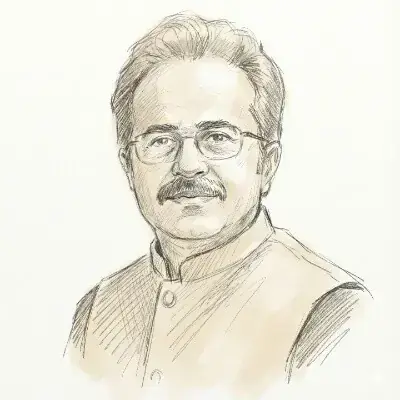ISLAMABAD: The Islamabad High Court was informed on Wednesday that the federal government might repeal the controversial ordinance that amended the Prevention of Electronic Crimes Act (Peca) and made defamation a cognizable and non-bailable offence.
This was stated by Additional Attorney General (AAG) Qasim Wadud during the hearing on identical petitions filed against the Peca ordinance as well as its Section 20. IHC Chief Justice Athar Minallah resumed the hearing on the petitions.
Since the attorney general had during a previous hearing pointed out that the amendment through an ordinance was indispensable to counter cybercrimes, especially exploitation of women, the chief justice asked AAG Wadud to read out scheduled offences under various sections of Peca.
The government’s law officer said Sections 3 to 19 related to the information system, glorification of offences, cyber terrorism, hate speech, terrorism financing, electronic frauds, adding that Sections 21 and 22 dealt with uploading of objectionable contents and child pornography. According to him, the punishments for these offences are up to seven to 10 years’ jail term.
Justice Minallah asked the reason for which defamation was made a cognizable and non-bailable offence under Section 20 of Peca. When defamation was listed in Section 499 of the Pakistan Penal Code, why the government had amended the cyber law to make defamation an offence with a punishment of five-year jail term, he wondered.
AAG Wadud pointed out that the defamation law existed even pre-partition era.
At this, the IHC chief justice remarked that it could not be appreciated if any colonial law was carried in an independent country.
Justice Minallah drew the attention of the law officer to the misuse of the Peca law, especially against journalists, and to silence the dissenting voices. Giving two examples, he said that in the case of journalist Bilal Ghouri, the FIA Cybercrimes Wing invoked Section 20 for reading the contents of an already published book.
In another instance, the FIA registered an FIR against media personality Mohsin Baig at 9am in Lahore on the complaint of the federal minister Murad Saeed who was in Islamabad that time, and raided Baig’s house at 9.30am.
“How was the minister’s complaint dispatched to FIA’s Lahore office?” the chief justice asked and sought a copy of the receipt of the courier company concerned.
“There are several instances of FIA’s abuse of power and giving them the power of arrest and sentencing journalists and people with dissenting voices is against the spirit of freedom of speech enshrined in Article 19 of the Constitution,” he observed.
Justice Minallah asked the AAG to give at least one example throughout the world where a country empowered the prosecution agency to arrest and jail any citizen for defamation.
Mr Wadud said that due to the ongoing political situation the government might repeal the Peca ordinance.
Justice Minallah then adjourned the hearing till April 4 when the court will hear final arguments in the matter.
The PTI government had promulgated the ordinance at a time when the legality of Peca’s Section 20 was already under examination before the IHC.
The law has rendered the recent jurisprudence of the superior courts irrelevant that was evolved in the cases registered against journalists and bloggers on the complaints of people other than the aggrieved persons. The IHC had made it clear that nobody, except the ‘aggrieved person’, could file a complaint against defamation. But after the promulgation of the ordinance, any person or institution, not necessarily the aggrieved person, could file a defamation case.
While the IHC had declared that the complainant under Section 20 would be a natural person, the ordinance has added more categories to it. The ordinance omitted the word natural in the heading of Section 20, which was previously titled “offences against the dignity of natural person”.
Also, an amendment to Section 2 of the amended act said the “person includes any company, association or body of persons whether incorporated or not, institutions, organisations, authority or any other body established by the government”.
Published in Dawn, March 31st, 2022

































